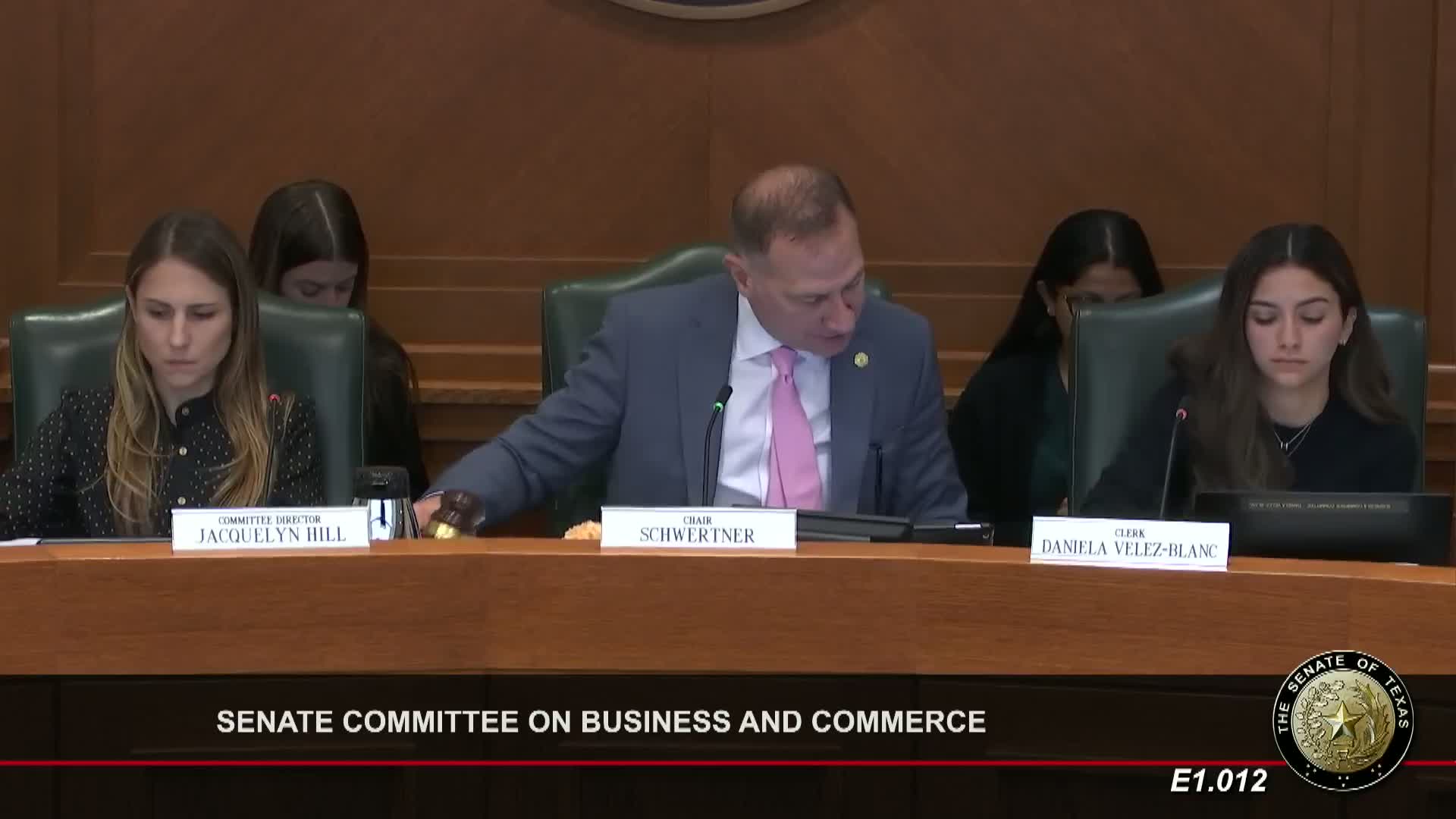Article not found
This article is no longer available. But don't worry—we've gathered other articles that discuss the same topic.
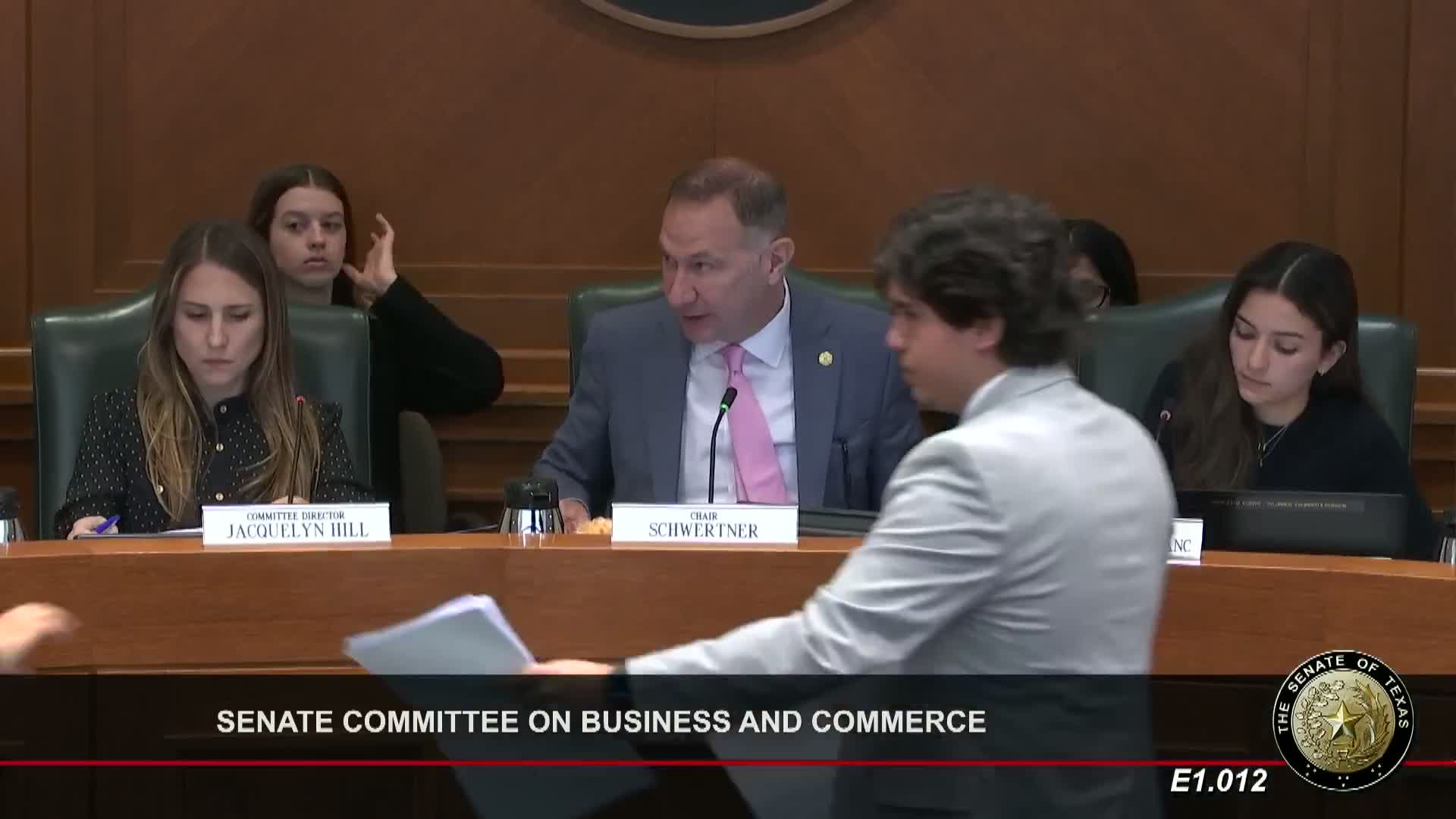
Senate panel hears support for HB 4238 to protect victims of coerced debt and identity theft
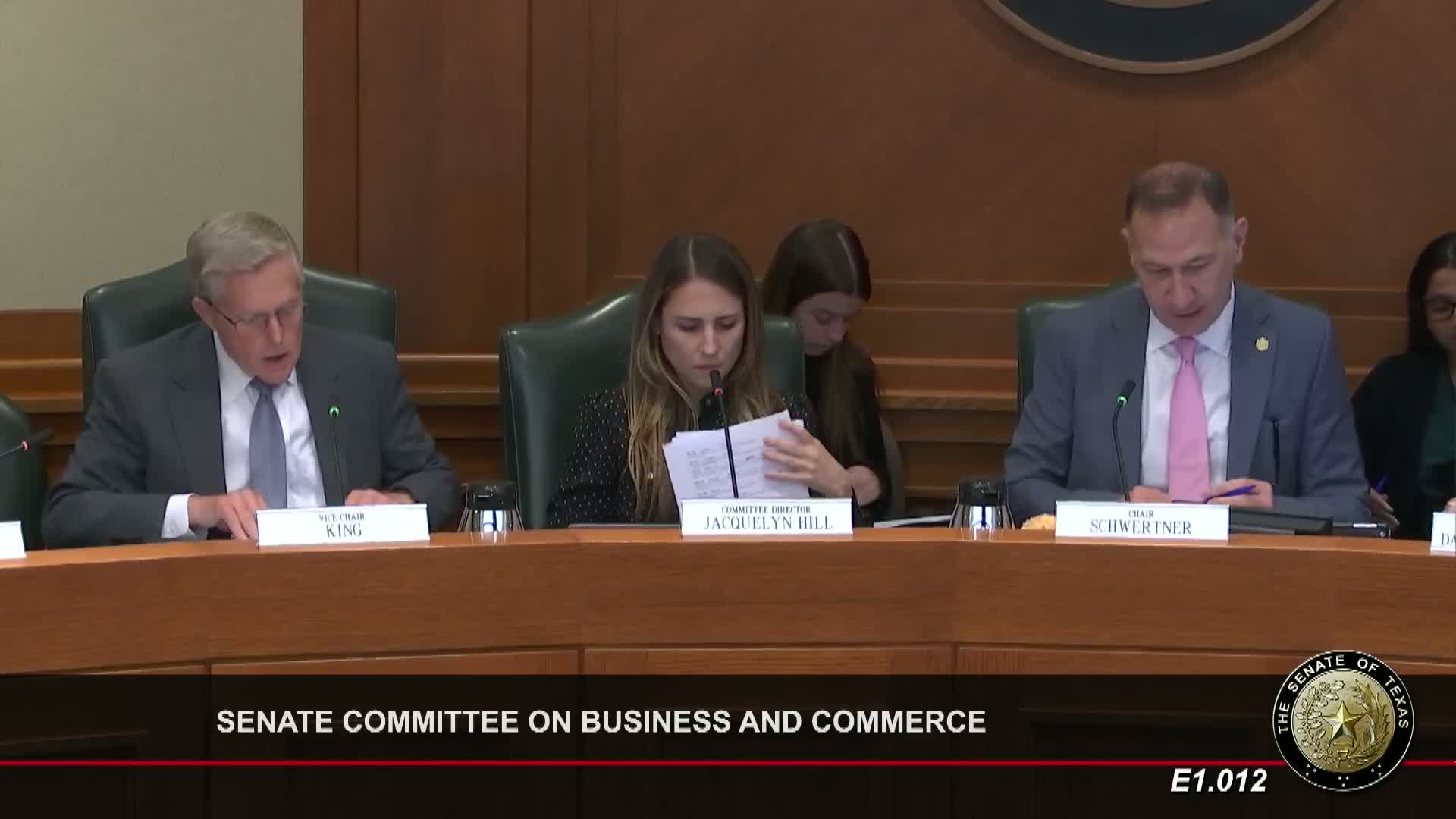
Senate panel hears opponents, utilities clash over HB 3306 indemnity changes for electric infrastructure contracts
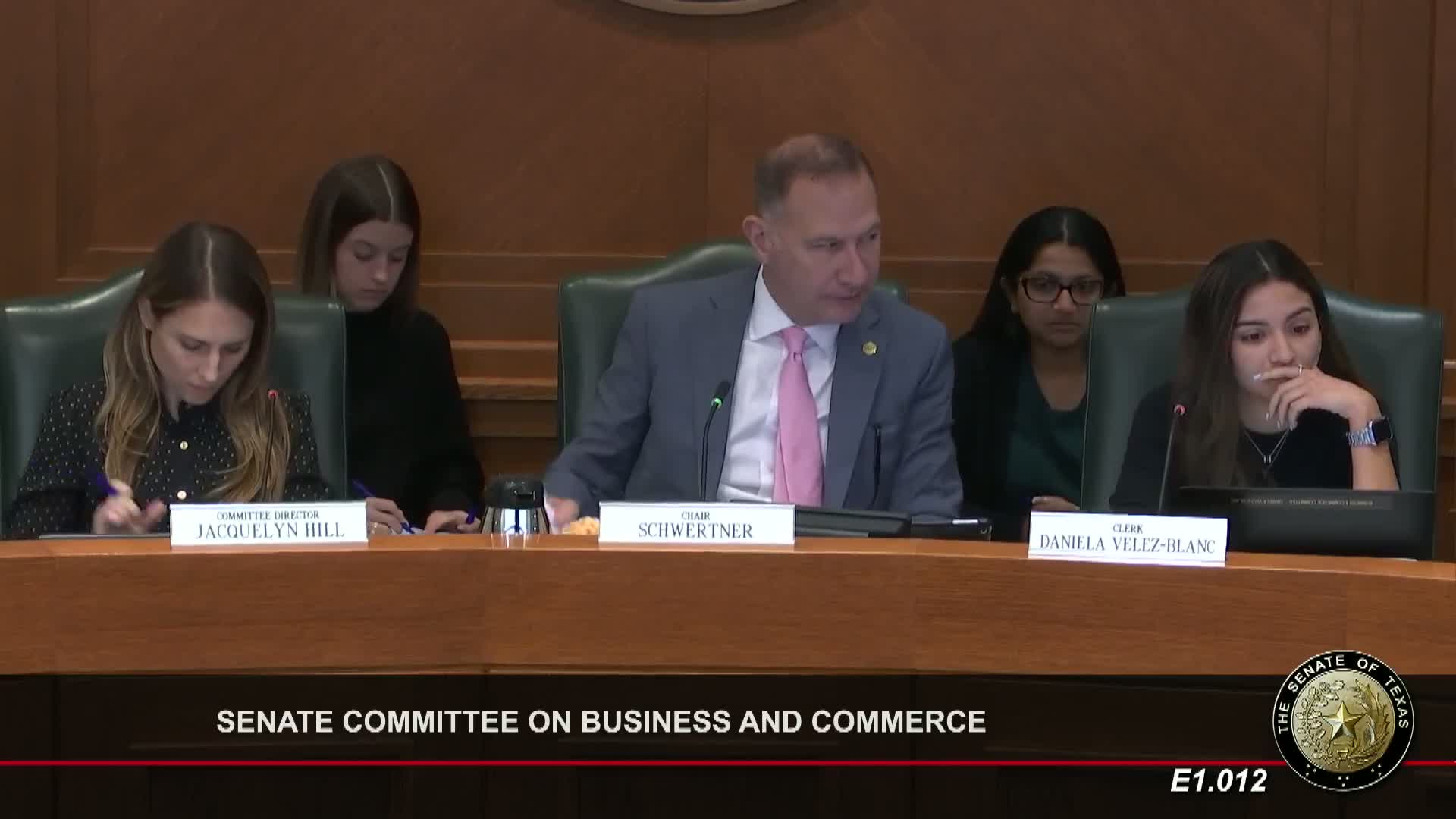
Panel weighs HB 1522 to extend local-government posting time and require budgets online and in print
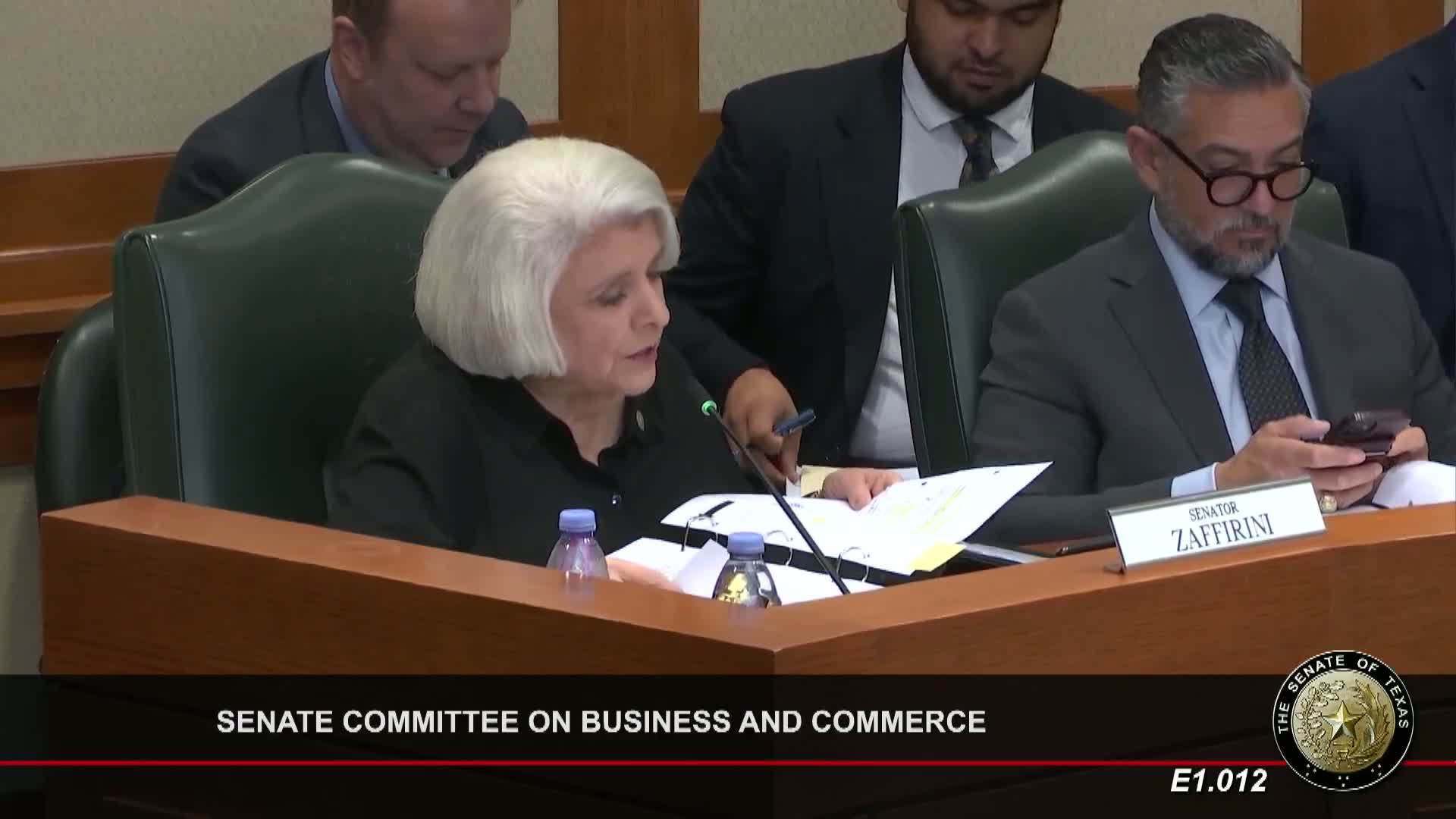
Journalists, policy groups back HB 4219 to require prompt replies on public-record requests
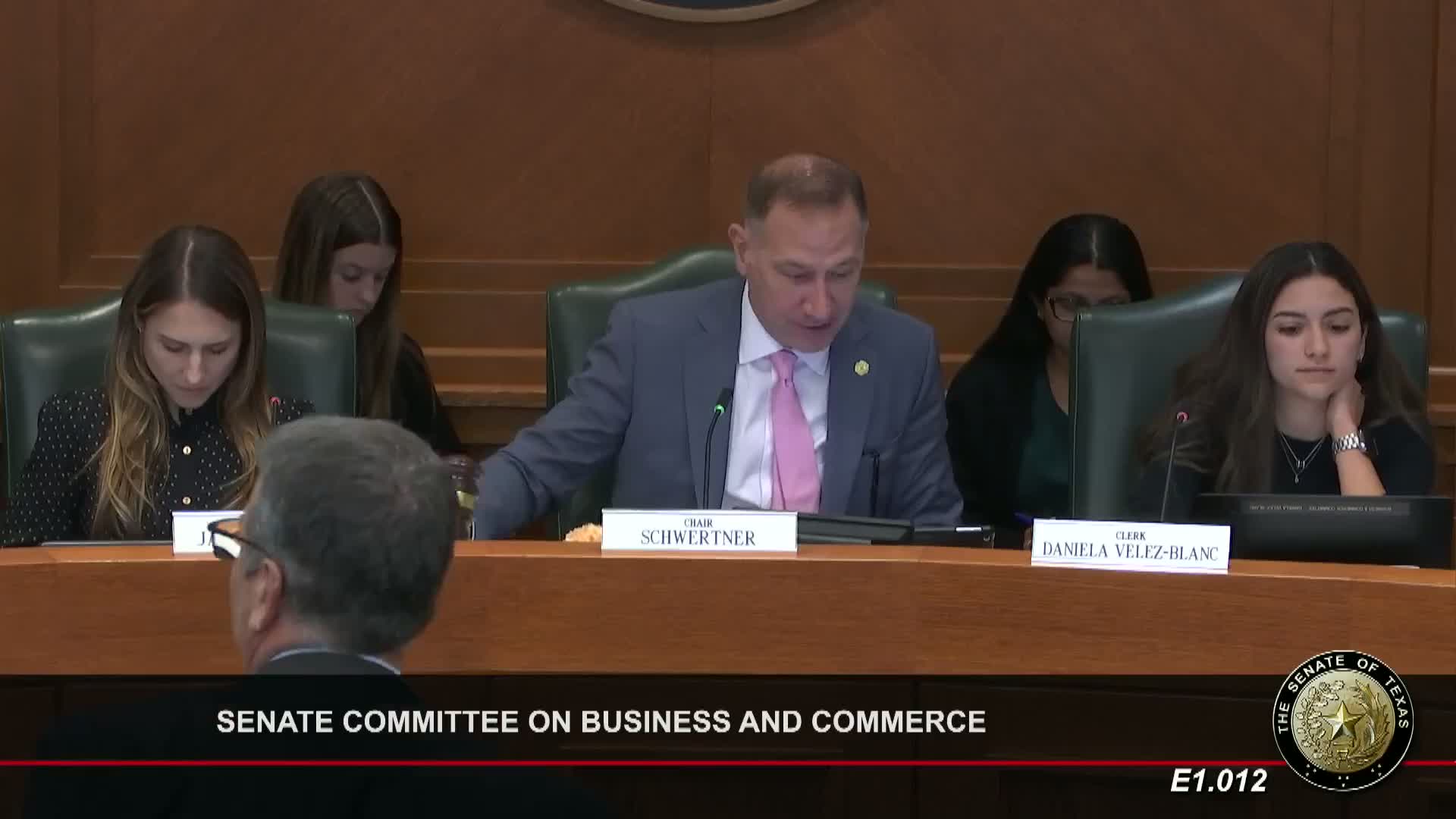
Contractors back HB 1922 change to accrual date in right-to-repair statute; committee hears business testimony
